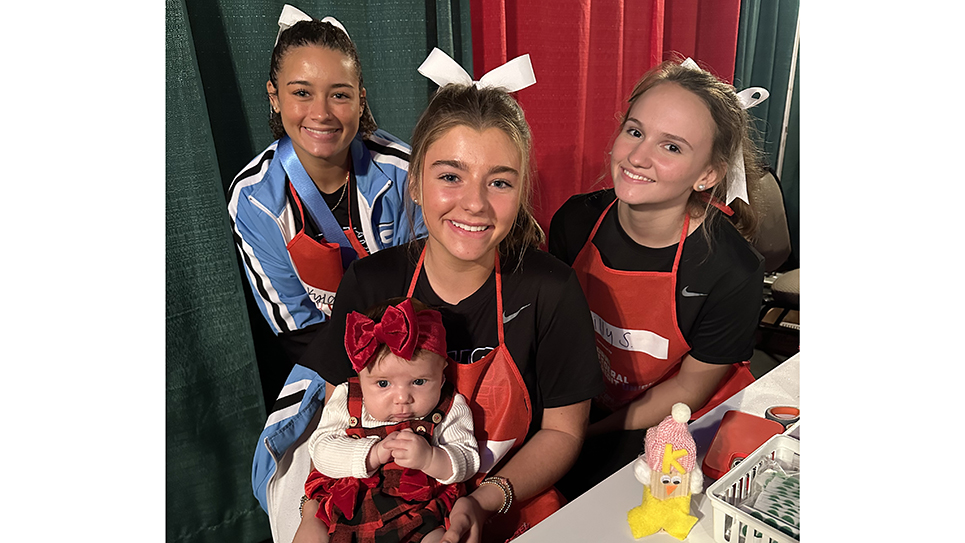Early Voting
By Dr. Harold A. Black
blackh@knoxfocus.com
haroldblackphd.com
I voted in Tennessee’s March 5 primary on February 19. No, I did not enter a time warp into the future. Rather I voted early. I arrived when the polls opened and there was already a line. We love early voting in my precinct. On Election Day, the lines are long and the wait is longer, so we vote early. For the life of me, I don’t understand the Republican establishment’s opposition to early voting. Clearly, Republicans vote early because in my precinct most voters were Republicans. I can understand the angst that comes from mail-in ballots which are ripe for fraud because it seems that only the Democrats have figured out how to cheat. But early voting at polling places is secure. Here in Knoxville, we are asked for either a driver’s license or a voter registration card in order to vote. We do not have to show proof of citizenship. However, when one registers to vote, most states (I presume all states) make you swear that you are a citizen. The state is supposed to check to make certain that you swore the truth. Arizona has purged over 400 voters from its rolls when it determined that noncitizens had registered. Not surprisingly most of the noncitizens had registered to vote when they got their driver’s licenses.
Perhaps the Republican establishment figures that if voting only occurs on Election Day, the Democrats are less likely to vote than Republicans. Economics would postulate that those people willing to stand in long lines for lengthy periods have lower opportunity costs than those who are less willing to stand in line. If opportunity costs are high, then voters are losing considerable earnings by standing in line. Since it is illegal to hire a surrogate to vote for you, the choice would be to either forego earnings and vote or not. Thus, those people with lower opportunity costs such as retirees, the unemployed or stay-at-home spouses would be the ones to dominate voting. If these voters were predominately Democrats, then the Republicans should embrace early voting. Rather they oppose it. Perhaps the opposition stems from the fact that over 50 percent of Democrats vote early versus 35 percent of Republicans. Also, a higher percentage of women vote early versus men. I hope this isn’t interpreted as sexist, but if women are likely to be the stay-at-home spouse, then their voting early is contrary to the predictions of economics in that they have lower opportunity costs. However, they do have the greater advantage of being able to vote at any time during the polling window.
I voted for Ron DeSantis. Yes, I know that he suspended his campaign. But DeSantis had proven to me that he would have made the best president. I liked most of the things that he did in Florida and wanted them repeated nationally. I did not like his interaction with Nikki Haley when they were the only two left but hopefully, he learned his lessons and will be back for another run in four years.
I did not like Nikki Haley. She seemed too fond of direct military intervention in foreign disputes. This must be a South Carolina thing because Lindsey Graham always wants to bomb somebody. I didn’t understand her position of having to register to be on the internet and its chilling effect on free speech. Her response on the cause of the Civil War where she omitted slavery seemed to harken on a fear of alienating the die-hards who champion the mournful “Lost Cause” position on southern slavery. Haley impressed me as being not sincere and an opportunist. Her core values were not evident.
I wish that she had run on her record in South Carolina. For a person of color to be elected and reelected governor there is an accomplishment that should be touted. The confederate flag was removed from the state capitol on her watch. She was the one who appointed Tim Scott to the Senate. She supported voter ID laws and opposed the resettlement of Syrian refugees in the state. As governor, she focused on small business development and cutting of taxes and burdens on small businesses. Surely these would have made for attractive platforms for a run for the presidency. But somehow, she seemed to be more focused on other areas. Perhaps she thought her time as U.S. ambassador to the United Nations was more important in a presidential race than being governor of a small southern state. But Jimmy Carter and Bill Clinton showed that not to be the case. Haley should have heeded their example.






